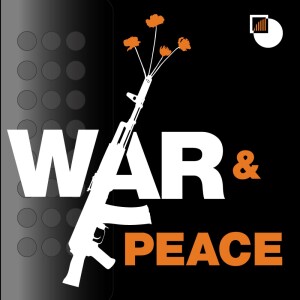
After sixteen years at Europe’s helm, Angela Merkel is stepping down from power. The federal election in September also marked an end to the long-term hold her political party, the Christian Democratic Union (CDU), had had over German politics. Merkel’s likely successor, Olaf Scholz, is now looking to forge a “traffic light coalition” between his Social Democratic Party (the SPD, whose trademark color is red), the Greens and the Liberals (yellow). While Scholz and his allies have made ambitious commitments to modernise Germany, it remains unclear what, if anything, this portends for foreign policy. Foreign affairs have so far taken the back seat during coalition negotiations, eclipsed by domestic concerns. Still, Germany’s new chancellor will be forced, however reluctantly, to contend with tremendous geopolitical shifts on the continent and further away.
This week on War & Peace, Hugh and Olga are joined by Jana Puglierin, Head of the European Council on Foreign Relations’ Berlin Office, to make sense of Germany’s future under a new chancellor. They discuss the deprioritisation of foreign policy, possible sticking points between coalition members, the future of the transatlantic alliance with the United States, and increasingly bitter relations with Russia, Turkey and China. They ask whether Scholz’s chancellorship will chart a new course for Europe, and how Germany and the continent are poised to contend with a world of great-power competition.
For more information, explore Crisis Group’s work on Europe and its neighbours by checking out the regional pages on the left hand side of our website. You can follow Jana’s work on the ECFR website.
If you want to hear more about Merkel’s legacy, make sure to check out EuroPod's latest podcast, available in four languages.
Hosted on Acast. See acast.com/privacy for more information.
More Episodes
 2023-12-05
2023-12-05
 2023-07-28
2023-07-28
Create your
podcast in
minutes
- Full-featured podcast site
- Unlimited storage and bandwidth
- Comprehensive podcast stats
- Distribute to Apple Podcasts, Spotify, and more
- Make money with your podcast
It is Free
- Privacy Policy
- Cookie Policy
- Terms of Use
- Consent Preferences
- Copyright © 2015-2024 Podbean.com





